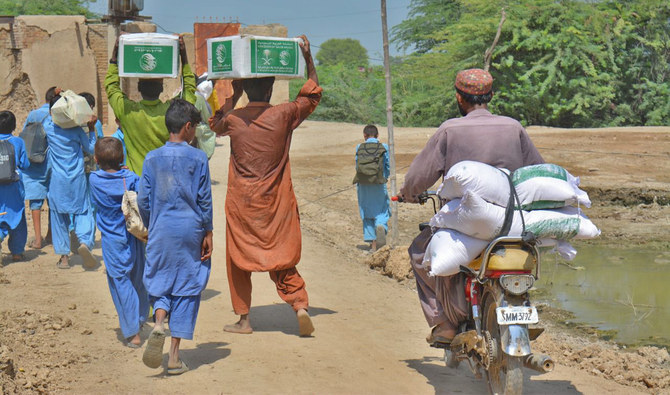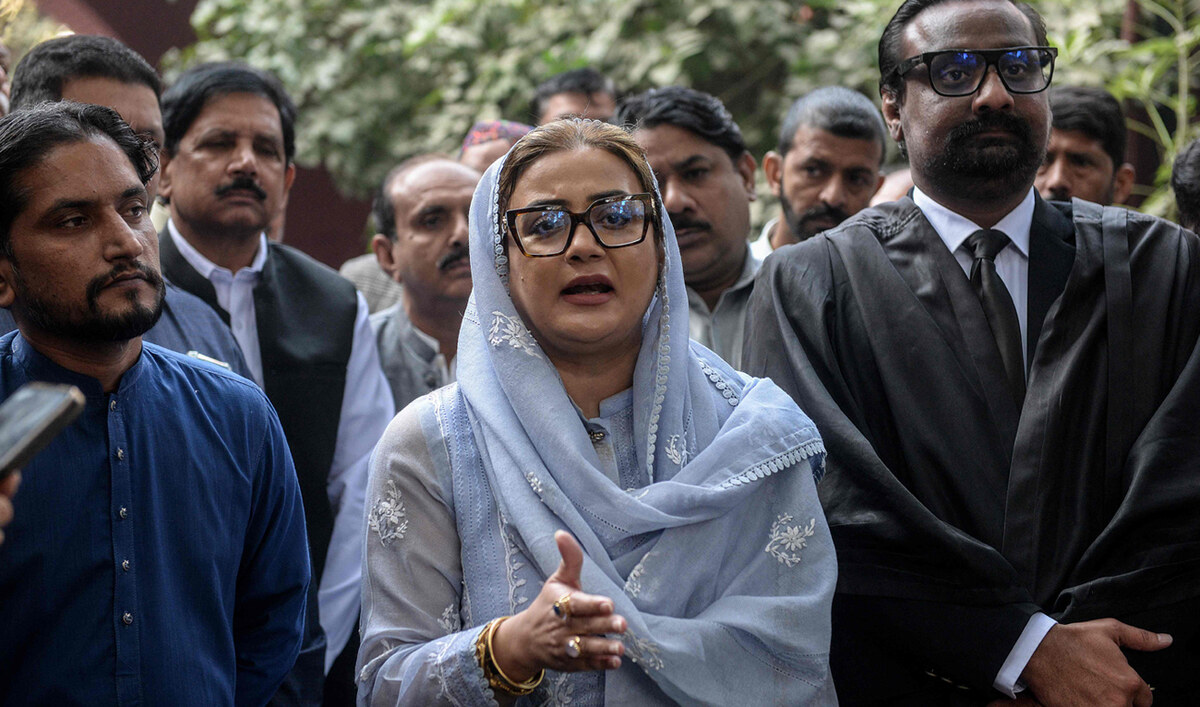ISLAMABAD: Saudi Arabia’s King Salman Humanitarian Aid and Relief Center (KSrelief) continued its relief activities and distributed more than 1,300 food packages in flood-hit areas of Pakistan, the Saudi Press Agency (SPA) reported on Monday.
Deadly floods, triggered by unusually high monsoon rains, have killed at least 1,696 people, including 630 children and 340 women, and affected more than 33 million in Pakistan since August. The deluges have inundated a third of the country, causing damages up to $30 billion.
On Monday, the United Nations humanitarian agency warned that outbreaks of vector-borne and water-borne diseases were a growing concern in the southern Sindh and southwestern Balochistan provinces, where many districts remain inundated by floodwaters.
A number of countries, including Saudi Arabia, the United Arab Emirates, as well as UN agencies have sent more than 130 flights carrying aid for flood survivors in Pakistan.
“The team of King Salman Humanitarian Aid and Relief Center (KSrelief) continued to distribute various relief aid to people affected by the floods in the Islamic Republic of Pakistan,” an SPA report read on Monday.
“As many as 1,360 food baskets were distributed yesterday in the Islamic Republic of Pakistan, benefiting 9,520 people.”
KSrelief last month launched a campaign to support flood-affected people in Pakistan as the administration in the Pakistani capital of Islamabad called for more international aid to deal with the situation.
In recent weeks, Saudi Ambassador Nawaf bin Said Al-Malki and KSrelief Director Dr. Khalid Al-Thmani also visited the flood-hit area of Sehwan Sharif in Sindh and distributed rations and other necessary items among people.
Meanwhile, United Nations Office for the Coordination of Humanitarian Affairs (UNOCHA) said UN agencies and their humanitarian partners “continue to scale up the response and have reached more than 1.6 million people directly affected by the floods.”
According to the UNOCHA, some 598,000 Pakistanis are currently living in temporary relief camps at more than 7,000 schools.
“Over 2 million houses have been impacted by the heavy rains and floods, with more than 1.2 million houses partially destroyed and nearly 825,000 fully destroyed,” the UN humanitarian agency said.
Pakistan is reeling from the aftermath of extremely heavy monsoon rains and floods, with officials and experts blaming them on climate change.
International aid continues to pour into Pakistan since August, with Saudi Arabia and the UAE establishing air bridges to deliver relief goods to affected people in the South Asian country.
At least 10 planes carrying Saudi humanitarian aid have arrived in Pakistan since last month.

















